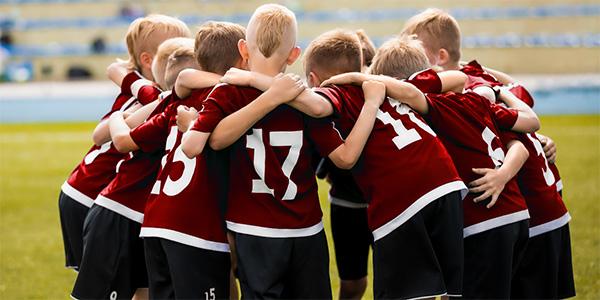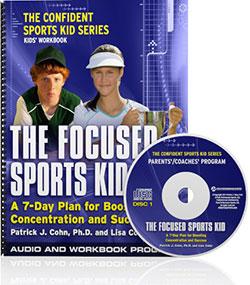
Sports Kids Who Focus Heavily on Their Competition
Julia Dreyer’s two teen girls, successful equestrians who ride English and Western events, struggle with a common problem: Rather than focusing on their own strengths before a competition, the girls concentrate too much on their competitors‘ assets.
“When they focus on a competitor, they forget what they’re personally bringing to the event,” says Dreyer, who lives near Melborne, Fla. “My children will either say, ‘I’m better than that person’ or ‘I’m not as good…They’ll mention a competitor and say, ‘Did you see what she did? I need to do that–and a little more.’ But that would be beyond perfect, which doesn’t exist,” says Dreyer, who is an accomplished equestrian who competes nationally and internationally.
In most sports, children will psyche themselves out in this fashion from time to time. They focus on their opponents‘ speed, size, height or other assets. Instead, young athletes should concentrate on their own strengths and goals before a competition. For example, a quarterback in football should think about the plays he’s going to run–not the skills, height or brawn of his opponents.
Dreyer recently paid us a visit in order to help her girls apply some sports psychology during competitions. The girls learned skills that they’ve also applied to other aspects of their lives, Dreyer says.
The young athletes learned that they needed to take their own routine–not someone else’s–into the competition with them. “They’ve done the practice. They know what they have to do,” says Dreyer. Now, 20 minutes before a competition, her teens warm up and think about their “mental plans” for their routines. Five minutes before the event, they breathe, calm themselves, and focus on their strengths.
Now that her teens aren’t psyching themselves out as much, Dreyer feels free to relax, sit back and enjoy their performances.
“I am able to step back and watch them and enjoy what they are doing and be proud of their efforts and successes.” As an athlete in her own right, Dreyer in the past has felt responsible for her daughters’ “process,” she says.
Learning some sports psychology has helped Dreyer’s daughters cope in different kinds of high-pressure situations, Dreyer says. One of her daughters recently took the ACT, a standardized test often required when kids apply to college.
“My daughter has strengths in some areas, and not in others,” says Dreyer. “Before the test, she said, ‘I’m just going to use the same things I use when I compete: I’m going to relax and be good with the things I am strong in, and not worry about my weaknesses.'”
That’s one of the important advantages of learning “mental game” skills in sports, she notes. Kids transfer the lessons to other parts of their lives.
“As sports parents, we try to supply our kids with all the best things in terms of equipment and coaches. But just helping them put their heads in the right place is the least expensive and most effective thing you can invest it,” Dreyer says.
Dr. Patrick Cohn and Lisa Cohn are founders of The Ultimate Sports Parent and Ultimate Sports Parent Radio. Listen to their radio show and download their free ebook by visiting www.youthsportspsychology.com.
Related Sports Psychology Articles
- How to Make Youth Sports Fun for All Ages
- Helping Kids Choose Sports
- Mental Training for Young Athletes
*Subscribe to The Ultimate Sports Parent Podcast
*Subscribe to Peak Performance Sports on Youtube
Download a free sports psychology report to improve your mental game
The Focused Sports Kid

“The Focused Sports Kid” is two programs in one. There’s a manual for parents/coaches, and a workbook for young athletes.
In addition to learning how to identify their distractions and deal with them, young athletes learn about how and why to focus on sports-specific “performance cues” that will help them feel more confident and excel in sports.
Parents/coaches also learn about these all-important performance cues and why they should help kids focus on them.
